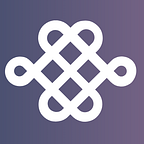Emerging technologies has the ability to offer flexible and individualized mental health support, remove obstacles to receiving mental healthcare, and give us new perspectives on people’s mental health and wellness in general. It has potential to bring innovative ways in mental health treatment and data collection.
Overview
Data collecting and support for mental health have entered a new era thanks to technology. The public, medical professionals, and researchers now have new options to seek assistance, track progress, and widen their knowledge of mental health with the help of mobile devices including cell phones, smartphones, and tablets.
Support that mobile apps provide can be relatively simple but efficient. Anyone who can send a text message, for instance, can get in touch with a crisis center. Additionally, new technologies might be bundled into a complex app for tablets or smartphones. Such applications may gather data on a user’s regular activity patterns using the device’s built-in sensors. Before a crisis appears, the app may alert that help is required if it notices differences in behavior. Some standalone apps claims about improving memory or cognitive abilities. Others assist users in making a connection with a peer counselor or a medical expert.
An explosion in app development has resulted from the excitement over the potential of applying technology in healthcare. Thousands of mental health apps in mobile app stores have been launched in the past few years and the number is still increasing annually. However, there is a lot of ambiguity in this new technological frontier. Consumers may worry about which apps they should trust because there is very little industry oversight and very little data on app effectiveness. Evidence needed to be shown to find out which technologies are safe and truly work.
Current Trends in App Development
Inventive researchers and engineers are gathering, taking advantages of their talents to solve a variety of mental health issues. Here are some popular trends in developing app:
Thinking Skill Improvement
A lot of companies are building apps that can help users to improve their thinking skills or cognitive remediation. The target customers of this app are people with serious mental health problems, which makes it not suitable for users who only want to relax better.
Self-management
Self-management apps are where users log their daily activities, mood, and symptoms… so that the apps can have information about users to provide suitable recommendations. For instance, users may use the app to create tools for managing stress, anxiety, or sleep issues. They could also set up reminders to take medicine. Some software can even monitor users’ heart rate, breathing patterns, blood pressure, and other physiological data in order to track their progress and provide feedback.
Care Support
By allowing the user to communicate with other people, this kind of software technology provides further assistance. The app can connect users with peer assistance or might send data to a qualified healthcare professional who can provide direction and therapy alternatives. There are still researches going on about how much human interaction people need to make these apps more effective.
Symptom Tracking
Apps that can gather data using smartphone sensors are being developed with a lot of effort. The mobility patterns, social interactions (such as the quantity of messages and phone calls), behavior at various times of the day, vocal tone and speed, and other data can all be recorded by these sensors. These apps may have the ability to evaluate these data in the future to ascertain the user’s mental condition in real time. They could also be able to identify behavioral changes that indicate mania, depression, or psychosis before they really happen. Though an app cannot replace a mental health expert, it still can notify caretakers when users need more care. The objective is to develop applications that assist a variety of users, including people who suffer from severe mental diseases.
Skill Training
Since they assist users in developing new coping or thinking skills, skill-training apps may resemble games more than other mental health applications. An instructive video on social support or anxiety management may be viewed by users. Users may then decide which new tactics to attempt, and they may use the app to monitor how frequently they are used.
Data Collecting
Apps for data collecting can collect data of the user with users’ permission. Researchers’ understanding of mental health can be improved, and they can create more effective interventions, by gathering information from many people at once.
Summary
New technologies for diagnosing, tracking, and treating mental health issues are developing quickly. They may increase the range of available treatment options and enhance the health and wellbeing of both individuals and communities. The evidence base for the efficacy and safety of mental health technologies needs to be strengthened. Appropriate regulatory frameworks are also required to help users, clinicians, and developers navigate the market and to include potential users, their families, and care providers in the development of technology.
See more at ivirse.com
